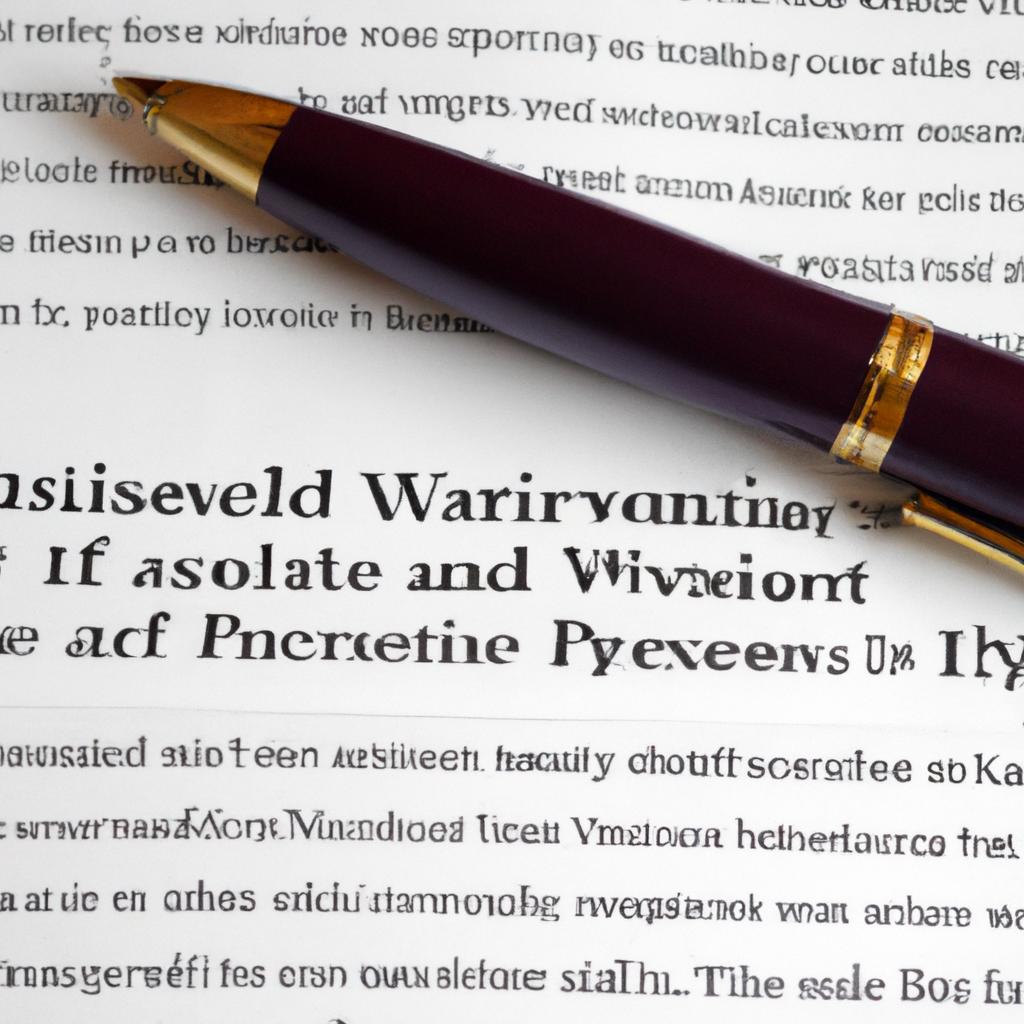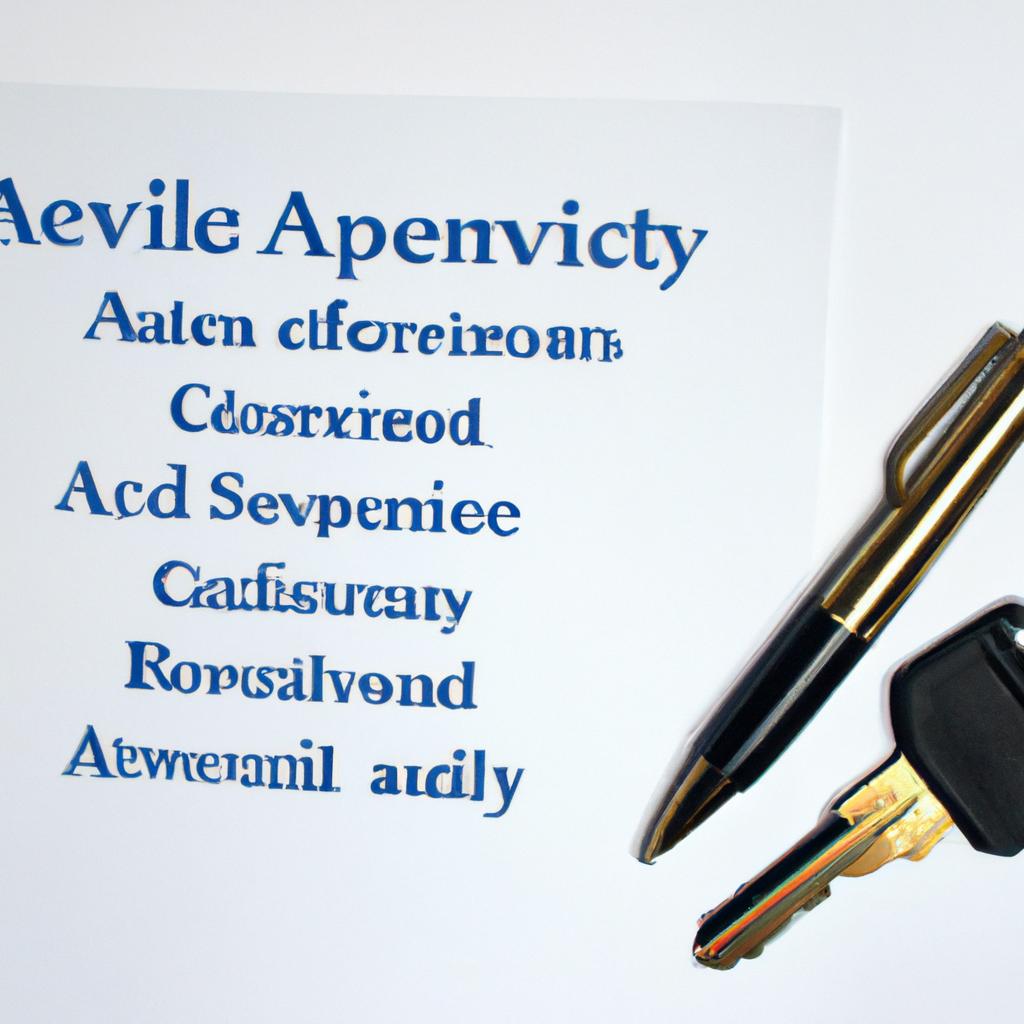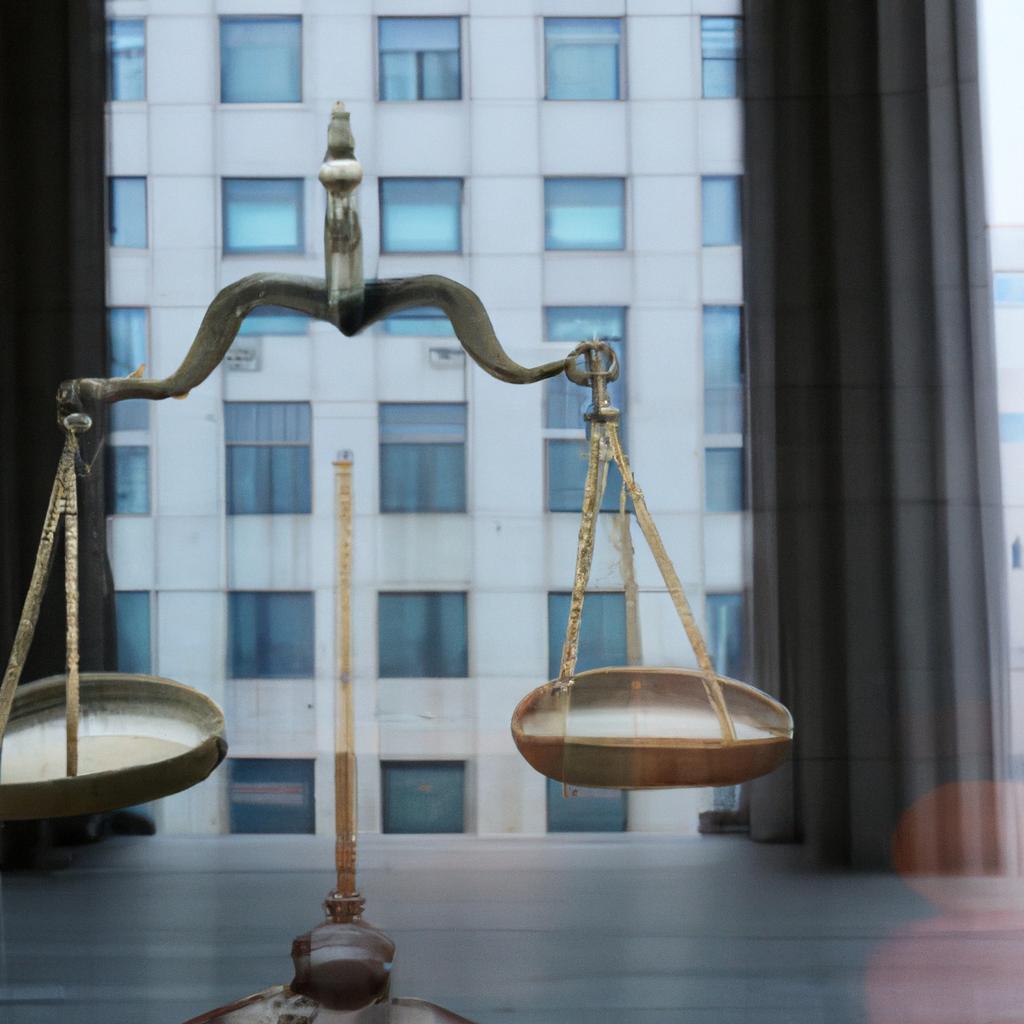In the intricate realm of estate planning, the utilization of a self-proving affidavit for wills stands as a crucial instrument in ensuring the seamless execution of one’s final wishes. As experienced practitioners in the field of probate and elder law, the Morgan Legal Group, located in the bustling metropolis of New York City, is well-versed in the intricacies of crafting legally binding documents such as wills and trusts. Join us as we delve into the nuances of self-proving affidavits and their significance in the realm of testamentary dispositions.
Understanding the Purpose of a Self Proving Affidavit in a Last Will and Testament
A self proving affidavit in a last will and testament is a crucial legal document that serves to streamline the probate process and ensure the validity of the will. By signing a self proving affidavit, the witnesses to the will affirm under oath that they witnessed the testator sign the will and that they believe the testator was of sound mind and not under any undue influence at the time of signing.
One of the main purposes of a self proving affidavit is to eliminate the need for the witnesses to testify in court during the probate process. This can help expedite the administration of the estate and avoid potential disputes over the validity of the will. Additionally, a self proving affidavit provides an extra layer of protection against challenges to the will’s validity, as it serves as concrete evidence of the testator’s wishes.

Key Components Required for a Valid Self Proving Affidavit
When creating a self-proving affidavit for a will, there are key components that must be included to ensure its validity. These components serve as crucial elements that help establish the authenticity of the will and protect against potential challenges in the future. The following components are essential for a self-proving affidavit:
- Signatures of Testator and Witnesses: The affidavit must include the signatures of the testator (the person creating the will) and at least two witnesses who were present when the will was signed. These signatures attest to the authenticity of the document.
- Statement of Intent: A statement within the affidavit confirming that the testator and witnesses understand that they are signing a legal document that is intended to serve as the testator’s last will and testament.
- Acknowledgment by Notary: The affidavit should be signed in the presence of a notary public who acknowledges the signatures of the testator and witnesses, further solidifying the validity of the document.

Benefits of Including a Self Proving Affidavit in Your Will
When creating a will, it is important to consider including a self proving affidavit. This legal document can greatly simplify the probate process and ensure that your wishes are carried out smoothly. By including a self proving affidavit in your will, you are providing sworn statements from witnesses that can help validate the authenticity of the document without the need for them to appear in court.
One of the main is that it can help expedite the probate process. By having witnesses sign the affidavit at the time of signing the will, the court can accept the will as self-proven, saving time and potentially reducing costs associated with the probate process. Additionally, having a self proving affidavit can provide an added layer of protection against potential challenges to the validity of the will, giving you peace of mind that your final wishes will be carried out as intended.

Guidelines and Best Practices for Executing a Self Proving Affidavit with Legal Assistance
When it comes to executing a self proving affidavit for a will, it is essential to follow certain guidelines and best practices to ensure that the document is legally sound and will hold up in court. With the assistance of legal professionals, such as the experts at Morgan Legal Group in New York City, you can navigate the process with confidence and peace of mind.
Some key tips for a successful execution of a self proving affidavit include:
- Ensuring that all parties involved sign the affidavit in the presence of a notary public.
- Having the affidavit notarized with the proper wording and format as required by state law.
- Keeping the original affidavit in a safe and secure location, such as a lawyer’s office or a bank safe deposit box, to prevent loss or tampering.
| Benefit | Details |
|---|---|
| Legal Protection | Ensures that the will is legally valid and can withstand any challenges in court. |
| Peace of Mind | Provides reassurance that your final wishes will be carried out as intended. |
Q&A
Q: What is a self proving affidavit for a will?
A: A self proving affidavit for a will is a legal document signed by the witnesses to a will, confirming that they witnessed the testator sign the will and that they believe the testator was of sound mind at the time of signing.
Q: Why is a self proving affidavit important?
A: A self proving affidavit helps to streamline the probate process by providing evidence that the will is valid, and potentially preventing challenges to the will’s authenticity.
Q: How is a self proving affidavit created?
A: To create a self proving affidavit, the witnesses to the will must sign a sworn statement in the presence of a notary public, attesting to the validity of the will and their witnessing of the testator’s signature.
Q: Can the self proving affidavit be challenged in court?
A: While it is possible for a self proving affidavit to be challenged in court, having one in place can significantly strengthen the validity of the will and make it more difficult for challengers to contest its authenticity.
Q: Is a self proving affidavit necessary for every will?
A: While a self proving affidavit is not required in every jurisdiction, it is generally recommended as a useful tool to help ensure the validity of the will and expedite the probate process.
Q: How can I ensure that my will includes a self proving affidavit?
A: To include a self proving affidavit in your will, be sure to discuss this option with your attorney and make sure that the witnesses to your will are aware of the need to sign the affidavit in the presence of a notary public.
In Retrospect
In conclusion, a self-proving affidavit for a will can provide peace of mind and streamline the probate process for your loved ones after you pass. By ensuring that your will is properly executed and legally recognized, you can rest assured that your final wishes will be carried out as you intended. If you have any questions or need assistance with creating a self-proving affidavit for your will, don’t hesitate to consult with a legal professional. Remember, proper planning now can help alleviate stress and confusion for your heirs in the future. Thank you for reading!


